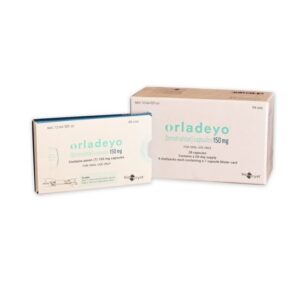ozempic babies
ozempic babies
The implications of Ozempic (semaglutide) for pregnant and nursing mothers. This article discusses the potential risks, safety, and side effects of Ozempic on infants, as well as guidelines for managing diabetes during pregnancy. Learn about dosage recommendations, the importance of glucose control, and the necessity of consulting healthcare providers to ensure the health of both mothers and their babies. Despite its effectiveness in diabetes management, caution is advised due to limited research on its impact during pregnancy and lactation. Stay informed about this critical topic for maternal and child health.
Description
ozempic babies
Understanding Ozempic: Babies, Side Effects, Dosage, and Warnings
Ozempic and Its Effects on Infants: Safety and Risks
Ozempic, a medication primarily used for the management of type 2 diabetes, has garnered attention regarding its safety during pregnancy and lactation. Understanding the implications of this drug on infants is critical for expecting and new mothers who may require diabetes management. Clinical studies exploring the safety of Ozempic during pregnancy are limited, making it crucial for healthcare providers to weigh both the benefits and risks when prescribing this medication to pregnant patients.
One major concern is the potential impact of Ozempic on fetal development. Although animal studies have suggested some risks, translating these findings to humans requires caution. There is a potential risk of adverse outcomes during pregnancy, including macrosomia, a condition characterized by excessive birth weight that can complicate delivery. In breastfeeding mothers, while the data on Ozempic’s excretion in breast milk is sparse, experts recommend monitoring infants for possible side effects until more comprehensive studies confirm its safety profile.
Anecdotal evidence and expert opinions indicate that while managing maternal diabetes is essential for both maternal and infant health, the use of Ozempic should be carefully considered. The American College of Obstetricians and Gynecologists suggests that women with diabetes should maintain optimal glucose control during pregnancy to mitigate risks of congenital anomalies associated with hyperglycemia. Therefore, the decision to use Ozempic during pregnancy must involve a thorough discussion between the patient and their healthcare provider. Expectant mothers should be educated about potential risks to their babies and encouraged to report any unusual symptoms or concerns during this period.
In summary, while Ozempic can be effective in managing diabetes, its use in pregnant or nursing mothers requires careful consideration of the benefits against potential risks to infants. Further research is necessary to establish comprehensive guidelines ensuring the safety of both mothers and their children.
Dosage, Warnings, and Side Effects of Ozempic
Ozempic (semaglutide) is prescribed primarily for the management of type 2 diabetes. Adhering to the appropriate dosage guidelines is crucial for maximizing the medication’s benefits while minimizing the risk of adverse effects. The usual starting dose of Ozempic is 0.25 mg once a week, which may be increased to 0.5 mg after four weeks, if necessary, to enhance glycemic control. Further adjustments can be made after individual assessment, with a maximum dosage of 1 mg per week. It is essential to follow the prescribed dosage to avoid complications and potential overdose.
Like other medications, Ozempic is associated with a variety of side effects. Common side effects may include nausea, vomiting, diarrhea, and abdominal pain, which generally improve over time as the body adjusts to the medication. Serious side effects, although less frequent, may include pancreatitis, kidney impairment, and allergic reactions. It is critical for patients to be aware of these symptoms and seek immediate medical assistance when required. In particular, caution is warranted regarding the risks posed to children who may be indirectly exposed to the medication, as the effects of Ozempic in young populations are still under study.
Patients considering Ozempic must also take note of specific warnings. This medication can interact with other drugs, potentially altering its effectiveness and safety profile. Those with a history of certain health conditions, such as a personal or family history of medullary thyroid carcinoma or multiple endocrine neoplasia syndrome type 2, should not use Ozempic. Furthermore, healthcare providers should monitor patients closely, conducting regular assessments to evaluate kidney function and other vital aspects of health during treatment. Such vigilant monitoring helps mitigate risks while optimizing the therapeutic outcomes of Ozempic.
ozempic babies,ozempic babies,ozempic babies,ozempic babies,ozempic babies,ozempic babies,ozempic babies,ozempic babies,ozempic babies,ozempic babies,ozempic babies,ozempic babies,








Reviews
There are no reviews yet.